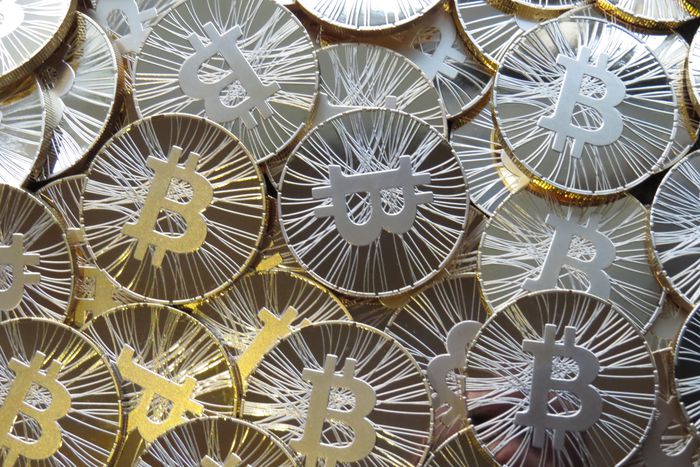
Bitcoin : the currency of the future?
Published on
Translation by:
Adam WyettBitcoin is a new virtual currency which depends on neither a central bank nor the International Monetary System. It does, however, meet all necessary requirements to be a legitimate form of payment; it's cheap, valuable and safe. Created via a P2P system by the users themselves, it's had so much success that millions of dollars worth are already in circulation
If this is the first time you've heard of Bitcoin, well today's your lucky day. You're amongst the few fortunate people that, perhaps, in a couple of years will be able to say that you knew about it before it became big. However, if you've already heard of it and you're neither a hacker nor a nerd, then it's very likely we've seriously underestimated the potential of the Bitcoin phenomenon.
The difference between Bitcoin and other currencies like the Euro is that it doesn't have an international financial institution behind it. Financial institutions control, regulate and assign value to money. But what's behind Bitcoin? It's complicated. As the name suggests, Bitcoin relies on just a handful of 'bits' in order to guarantee its worth, security and anonymity of transactions. But who issues Bitcoins? And where does it get its value from? Let's start from the beginning.
Bitcoin is a new virtual currency which has extraordinary potential. Nothing to get excited about so far since we use virtual money every day while making purchases on the net. We could even go as far as to say that, even in real life, cash payments have almost been phased out.
The Bitcoin system works through an open code protocol developed in 2008 by a group of cryptographers working under the pseudonym Satoshi Nakamoto. The said system is designed in such a way that there can never be more than 21 million Bitcoins in circulation, around the world. It's been estimated, however, that this ceiling will not be reached until 2140, so don't panic! This allows the currency to grow at a constant and stable rate, in turn minimising the likelihood of inflation. But what gives this currency its true value is the way in which it's created. As unbelievable as this may sound, it's the users themselves who issue new coins via a Peer-to-Peer network of nodes (similar to those used by file sharing platforms, like BitTorrent).
The process is fittingly known as 'mining' as the system runs on encrypted blocks of code which depend on the investment of a considerable amount of time and the collective hardware resources of a network of users to decipher and eventually free them. Once decrypted, the user receives a portion of its value. Anyone can become a 'miner', but the rewards are so measly that only true enthusiasts dedicate themselves to the task.
Furthermore, the encryption algorithm is intentionally made to increase in complexity in correlation with the growing number of miners, which means the intrinsic value of Bitcoins stays constant. And given that it is possible to track each 'bit' to the source, authenticity verification is instant, which means this currency is practically fraudproof. Transactions are recorded, but not the names of those who issue them, guaranteeing anonymity.
Once created, Bitcoins are stored in a virtual wallet on your PC, smartphone or tablet. There, they are ready to be traded in for goods or an established currency, without the need for banks or any other intermediary, which means that commission and transfer fees are kept considerably lower than what you've come to expect. Statistics show that, with 11.5 million 'bits' (more than half of the cap) in circulation, Bitcoin has come a long way in a short space of time; it's already the biggest virtual currency in the world. In fact, the market value has doubled, from one to two billion dollars in the last six months.
It's during this last half a year that Bitcoin has won over many of its critics and initial skeptics who associated the currency with illegitimate businesses and made spectacular hypotheses which could lead to a‘Bitcoin bubble’. The latter could indeed happen. Just as it's logical for the dollar's exchange rate to fluctuate in accordance with the law of supply and demand, the same is true for Bitcoin, which is probably its biggest flaw. Even so, the market's growth and the normalisaton of Bitcoin as a means of payment should theoretically minimise this risk.
The amount of businesses now accepting this form of payment is growing by the day. Walmart, the American multinational retail corporation of which ASDA is a subsidiary and Baidu, dubbed 'China's Google', are the biggest examples. Moreover, the list is starting to expand, ranging from headwear boutiques in London to law schools in Israel and even dating sites, pubs and restaurants all over the world.
Could Bitcoin one day become the single worldwide currency? Is it even possible to have a monetary system that can escape the banks' control? It's still too early to say but the suggestion could, without a doubt, lay the foundations for a new philosophy: a fairer and more democratic way of thinking and understanding the economy. Ultimately, it's a sophisticated way of going back to how things were - to a now remote time where the value of money was based on its weight in gold and not decided by men in suits.
Translated from Bitcoin: ¿la moneda del futuro?



